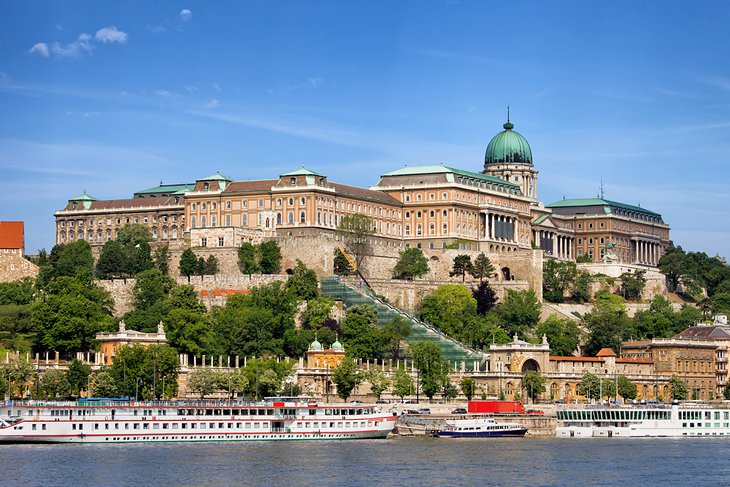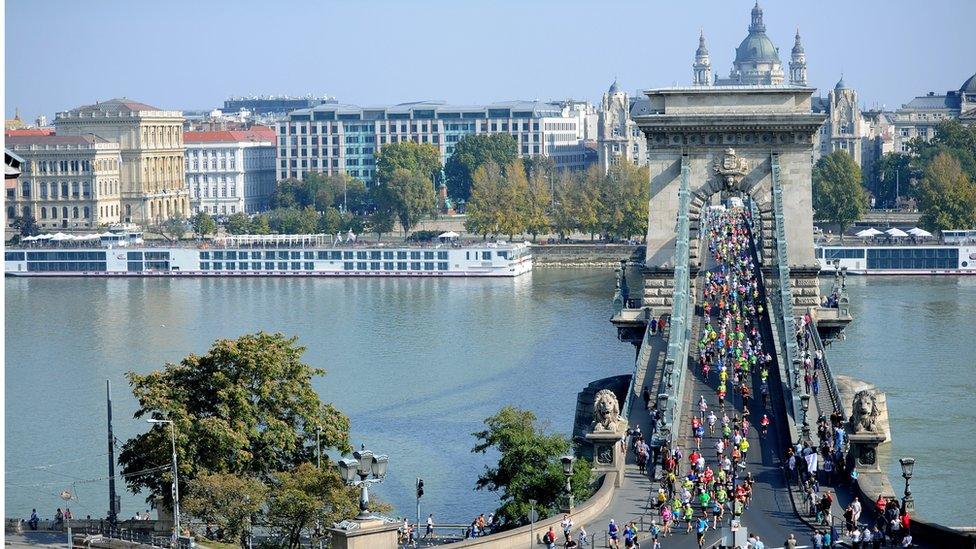An Introduction to Hungary
Hungary, a suitable business location, located in the heart of Central Europe, is known for its scenic landscapes, rich cultural heritage, and dynamic historical legacy. With a population of about 9.6 million, Hungary is a member of the European Union (EU), NATO, and the Schengen Area, reflecting its active role in European affairs. The country’s economy is diverse, with key sectors including automotive manufacturing, agriculture, tourism, and industry. Hungary’s national currency, the Hungarian Forint (HUF), is still in use despite efforts to adopt the Euro. Hungarian cuisine, with dishes like goulash, and its renowned wine regions, highlight its blend of tradition and modernity.
Living Standards in Hungary: An Overview
Hungary offers an affordable standard of living with access to essential services, making it an attractive place for residents and expatriates alike. The country ranks moderately high on the Human Development Index (HDI), reflecting its strong public infrastructure, healthcare, education, and cultural offerings.
Housing and Utilities
Housing in Hungary is generally more affordable than in Western Europe, with rent varying significantly. Budapest is more expensive, where rents for a one-bedroom apartment range from €500 to €800, while smaller cities or rural areas cost between €300 to €500. Utilities like water and electricity are reasonably priced.
Healthcare System
Hungary’s public healthcare system provides comprehensive services for citizens, covering a wide range of medical needs. Private healthcare options are also available for those seeking quicker or specialized treatments.
Education Opportunities
Education is free at primary and secondary levels. Hungary is home to several prestigious universities, attracting international students due to their high educational standards and research facilities.
Transportation and Mobility
Hungary has a well-developed public transportation network, especially in Budapest, with buses, trams, and metro systems. Regional and international train connections make it easy to travel within the country and across Europe.
Cultural and Recreational Life
Hungary is rich in cultural activities, from classical music and theater to vibrant festivals. The country offers a variety of recreational activities, from visiting historic sites to enjoying its culinary scene. The cost of living is relatively low, making these activities accessible to locals and visitors.
Taxation System in Hungary: Personal Income Taxation
Hungary’s tax system is straightforward, featuring a flat tax rate for individuals, which simplifies the process for taxpayers.
Flat Personal Income Tax
Hungary’s income tax is set at a flat rate of 15%, one of the lowest in the EU. This system reduces complexity and makes it easier for residents to navigate.
Tax Benefits and Allowances
Families with children benefit from allowances that reduce their taxable income, making the system more equitable for households with dependents.
Corporate Taxation in Hungary: A Competitive Landscape
Hungary’s corporate tax system is one of the most attractive in Europe, with the lowest corporate tax rate in the EU, making it a destination for foreign investments.
Corporate Tax Rate
Hungary’s corporate tax rate is just 9%, one of the lowest in the European Union. This makes it an attractive environment for international businesses.
VAT on Goods and Services
Hungary’s Value-Added Tax (VAT) is 27%, one of the highest in Europe. However, essential goods such as food and pharmaceuticals are taxed at a lower rate, making the tax system sensitive to consumer needs.
Incentives for Businesses
The government provides tax incentives for investments in sectors like research and development, manufacturing, and technology, and offers financial support through special economic zones.

Key Industries Driving Hungary’s Economy
Hungary’s economy is supported by several key industries, including automotive, technology, tourism, pharmaceuticals, and agriculture.
Automotive Industry
Hungary plays a vital role in the European automotive sector, hosting international manufacturers like Audi, Mercedes-Benz, and Suzuki. The sector generates significant revenue and provides numerous jobs.
Technology and IT Innovation
Hungary has become a growing hub for technology and IT services, particularly in Budapest, which serves as a tech center in Central Europe. The country has a strong startup ecosystem and benefits from a skilled workforce and government-backed R&D programs.
Tourism Industry
Tourism is a major contributor to Hungary’s economy, with Budapest, Lake Balaton, and the country’s thermal spas being key attractions. Its rich history, architectural landmarks, and vibrant festivals draw millions of visitors annually.
Pharmaceuticals and Biotechnology
Hungary has a strong pharmaceuticals and biotechnology sector, with companies like Gedeon Richter and Egis expanding globally, supported by EU funding and international research collaborations.
Agriculture and Food Processing
Hungary’s fertile plains produce grains, fruits, and wine, which are vital to the country’s agricultural economy. The food processing sector adds value to these products, contributing to both domestic consumption and export.
Cost of Living and Inflation in Hungary
Hungary offers a relatively affordable cost of living, though this varies by region. Inflation rates have fluctuated, impacting purchasing power.
Inflation Patterns
Inflation in Hungary has ranged from 4% to 9% in recent years, influenced by global economic factors like energy prices.
Cost of Living
The cost of living is generally lower than in Western Europe, with rent in Budapest ranging from €500 to €800, and utility bills averaging between €100 and €150. Food costs are also affordable, and public transportation is inexpensive, with a monthly travel pass costing around €30.
Taxation on Property, Services, and Sales
Hungary employs several taxes, including property taxes based on the value of real estate, and excise duties on alcohol, tobacco, and fuel. Additionally, visitors pay a small tourist tax on accommodations.
Business Structure Options in Hungary
Hungary offers a range of business structures, from sole proprietorships to large corporations, catering to various business needs.
Sole Proprietorship
A sole proprietorship is simple to establish, with minimal startup costs but comes with unlimited personal liability.
Limited Liability Company (Kft)
The KFT is a popular structure for small to medium-sized businesses. It offers limited liability protection, requiring a low minimum capital investment.
Public Limited Company (Rt)
The Rt is suitable for larger businesses looking to issue shares to the public. It requires a higher minimum capital investment.
Partnerships
Hungary also recognizes general and limited partnerships, with varying levels of liability for partners.
1. Limited Liability Company (Kft)
The Limited Liability Company (Kft) is the most popular business form in Hungary, especially among small and medium-sized enterprises (SMEs). This structure offers the benefit of limited liability, meaning the owners’ assets are protected from business debts. A minimum capital investment of HUF 3 million (approximately €8,000) is required to establish this entity.
- Joint-Stock Company (Zrt/Nyrt)
For larger corporations, the Joint-Stock Company (JSC) is the most suitable option. There are two types of JSCs in Hungary: private (Zrt) and public (Nyrt). A public JSC (Nyrt) can issue shares on the stock market, while a private JSC (Zrt) operates under less stringent regulatory conditions but cannot offer shares publicly. - Branch Office
A branch office allows foreign businesses to establish a presence in Hungary without creating a separate legal entity. It is an ideal solution for foreign companies wishing to expand their operations into Hungary while maintaining control of their headquarters. - Representative Office
A representative office is intended for non-commercial activities such as market research, advertising, or networking. Unlike branch offices, representative offices are prohibited from engaging in direct profit-making activities but can help businesses assess the market and build local connections.
Visa-on-arrival access. This includes travel within the Schengen Area, the United States, and Canada, offering extensive global mobility to Hungarian citizens.
Benefits of EU Citizenship
As a member of the European Union, Hungarian citizens have the right to live, work, and study in any EU country without requiring additional permits or visas. This provides significant opportunities for personal and professional growth within the EU.
Global Standing
Hungary’s passport is consistently ranked highly on global mobility indexes, reflecting its strong diplomatic ties and Hungary’s integration into international frameworks. This global standing enhances the opportunities available to Hungarian citizens.

Essential Permits for Starting a Business in Hungary
Starting a business in Hungary, like in most countries, requires compliance with certain legal and administrative regulations. Entrepreneurs looking to establish operations in Hungary must be familiar with the necessary permits and licenses to ensure their business functions within the legal framework. These legal requirements involve several important steps, from registering the business to obtaining specific sector-related licenses and permits.
Business Registration
The first step to legally operating a business in Hungary is registration with the Hungarian Company Court. This process involves submitting various legal documents such as the Articles of Incorporation, proof of initial capital, and the details of the company’s shareholders. Registering your company is vital to gaining legal recognition and the operational rights that allow you to conduct business activities within the country.
Tax Registration
After registering the business, companies must also register with the National Tax and Customs Administration (NAV). This registration provides the company with a Tax Identification Number (TIN), which is essential for the company’s tax reporting, compliance, and Value-Added Tax (VAT) obligations. The TIN is crucial for businesses as it helps establish a tax record with the authorities.
Sector-Specific Licenses
Certain industries in Hungary require additional permits or licenses beyond general business registration. For instance, businesses in the hospitality sector, such as hotels, restaurants, or tour operators, need to obtain a tourism license. Meanwhile, businesses involved in food preparation and sales must secure health and safety certifications to ensure they meet public health standards. These industry-specific licenses are critical for businesses to comply with regulations governing health, safety, and operational standards.
Employment Permits
Entrepreneurs looking to hire foreign workers, especially from outside the European Union, must ensure they obtain employment permits for their employees. These permits are required to legally employ non-EU nationals and ensure the workers have the appropriate authorization to live and work in Hungary. This process involves verifying the worker’s eligibility for employment and legal residence within the country.
Environmental Permits
Industries that impact the environment, such as manufacturing or construction, must obtain environmental permits. These permits ensure that the company’s operations align with Hungary’s environmental protection laws. In some cases, these regulations are designed to minimize the impact of industrial activities on local ecosystems, ensuring businesses meet the necessary environmental standards.
Business Growth Potential for Expats in Hungary
Hungary offers significant opportunities for expatriates who are interested in starting and growing businesses. The country’s favorable economic conditions, emerging industries, and a well-educated, skilled workforce provide a solid foundation for foreign entrepreneurs. Below are some of the key sectors with strong growth potential in Hungary:
Technology and Innovation
Hungary’s technology sector is rapidly advancing, particularly in Budapest, which has developed into a hub for information technology (IT), fintech, and software development. Expats with experience in these fields will find plenty of opportunities to tap into Hungary’s innovative ecosystem. The country benefits from a skilled workforce, which is crucial for entrepreneurs looking to launch tech startups or expand existing companies. Moreover, Hungary’s government supports technological growth through incentives such as research and development (R&D) grants.
Tourism and Hospitality
Hungary’s tourism industry continues to thrive, presenting abundant opportunities for businesses involved in hospitality, travel, and leisure. Budapest is a prime destination for international tourists, and with Hungary’s rich history, beautiful landscapes, and cultural heritage, the tourism sector offers immense potential. Expats can explore opportunities such as boutique hotels, eco-tourism ventures, guided tours, and other tourism-related services.
Real Estate Development
Real estate development in Hungary, particularly in Budapest, remains a lucrative business venture for expats. The demand for both residential and commercial properties continues to rise, fueled by the city’s growing population, increased foreign investments, and its expanding economy. Moreover, Hungary’s relatively low property prices compared to other European capitals make it an attractive location for property investors and developers.
Education and Language Training
There is increasing demand for English language education and vocational training in Hungary. Expats with teaching qualifications or expertise in specialized fields can capitalize on this need by opening language schools or offering professional development courses. Hungary’s international student population and growing demand for skilled professionals provide an excellent market for educational services.
Agriculture and Food Processing
Hungary has a long-standing tradition of agriculture, particularly in wine production, grains, and other food products. Foreign entrepreneurs looking to invest in modern farming practices, organic agriculture, or food processing will find numerous opportunities. The strong agricultural base and fertile land make Hungary an attractive destination for innovations in food production, with significant potential for growth and development.

Pathways to Citizenship for Expats in Hungary
Hungary offers various pathways for expatriates looking to establish long-term residency or citizenship. These options are available based on different circumstances, such as employment, family ties, and investment.
Temporary Residency Permits
Expats can apply for a temporary residency permit, typically valid for up to five years. These permits are usually granted based on the individual’s employment, investment activities, or family reunification. Temporary residents enjoy many of the same rights as Hungarian citizens, though they are subject to limitations, particularly regarding permanent settlement in Hungary.
Permanent Residency
After five years of continuous legal residence, expats can apply for permanent residency. This status grants individuals the right to live and work in Hungary indefinitely and typically comes with fewer restrictions than temporary residency.
Naturalization and Citizenship
Expats who have lived in Hungary for eight consecutive years are eligible to apply for citizenship through naturalization. To be granted citizenship, applicants must prove their proficiency in the Hungarian language, demonstrate financial stability, and have a clean criminal record. The naturalization process requires several formalities, but it allows expats to fully integrate into Hungarian society and enjoy the benefits of full EU membership.
Investment-Based Residency
Hungary previously offered an investment-based residency program, where expatriates could secure long-term residency by investing in government bonds. While this program is currently paused, there is potential for it to be reopened in the future. If reinstated, it could provide another pathway to residency for those willing to make a substantial financial investment.
Why Choose Hungary for Your Business?
Hungary offers several advantages for businesses, making it an appealing destination for both local and international companies. The country’s strategic location in Europe, tax incentives, access to a skilled workforce, and its favorable position within the EU all contribute to Hungary’s attractiveness as a business hub.
Strategic Location
Hungary’s central location in Europe places it at the crossroads of Eastern and Western Europe, making it an excellent logistics hub. The well-developed transportation network, including highways, railways, and the Budapest Ferenc Liszt International Airport, ensures easy access to both regional and global markets. This strategic position helps businesses easily reach consumers and suppliers across Europe.
Attractive Tax Environment
Hungary boasts the lowest corporate tax rate in the European Union at just 9%, making it an attractive destination for foreign investments. This tax-friendly environment allows businesses to minimize operating costs while maintaining compliance with EU regulations. The low tax rate is one of the primary reasons why many international companies choose Hungary as a location for their operations.
Skilled and Multilingual Workforce
Hungary’s workforce is highly skilled, particularly in technical fields such as information technology, engineering, and business. The country places a strong emphasis on education, offering a steady stream of highly educated workers with expertise in various sectors. Moreover, many Hungarians are multilingual, with English being widely spoken in major urban areas. This linguistic proficiency makes Hungary an ideal place for international businesses looking to hire talent.
Access to EU Markets
As a member of the European Union, Hungary provides businesses with tariff-free access to over 450 million consumers. This access is a major benefit for businesses operating in Hungary, as they can expand into other EU countries without facing trade barriers. Membership in the EU also facilitates smooth trade and commerce across borders within the Schengen Area.
Government Support for Investors
Hungary’s government offers a range of incentives to attract foreign investors, including tax breaks, grants, and subsidies for research and development initiatives. The government prioritizes certain sectors, such as manufacturing, technology, and renewable energy, and provides special support for businesses investing in these areas.

How to Register a Company in Hungary
Registering a company in Hungary is a straightforward process, especially for EU and EEA nationals. Here’s a step-by-step guide on how to set up a business in Hungary:
Choose the Right Business Entity
The first step is to select the right business entity. Entrepreneurs can choose from several types of entities, such as Limited Liability Companies (Kft), Joint-Stock Companies (Zrt/Nyrt), or Sole Proprietorships. Foreign entrepreneurs may also establish branch offices or representative offices of their existing companies.
Reserve a Unique Company Name
The company name must be unique and approved by the Hungarian Company Court. This ensures there is no duplication with existing businesses in the country.
Prepare Legal Documents
Entrepreneurs must prepare a range of documents for business registration, including the Articles of Association, proof of the registered office address, identification documents for the directors and shareholders, and proof of initial capital (if applicable).
Appoint a Legal Representative
Under Hungarian law, companies must appoint a legal representative or attorney to manage the registration process and ensure compliance with local regulations.
Submit the Application
The completed application, along with the required documentation and registration fee, must be submitted to the Hungarian Company Court. Once approved, the company will receive its registration number, which is required to operate legally.
Register for Taxes and Social Security
Once registered, the company must also register with the National Tax and Customs Administration (NAV) to obtain a Tax Identification Number (TIN) and VAT number. Additionally, employers must register for social security contributions for their employees.
Open a Corporate Bank Account
Finally, opening a corporate bank account is necessary for depositing the company’s initial capital and managing its financial transactions.
Starting a business in Hungary offers numerous advantages, including a favorable tax system, skilled labor, and access to the broader European market. By following the appropriate steps to obtain the necessary permits and licenses, entrepreneurs can ensure their business thrives within Hungary’s legal and regulatory framework. Whether you’re interested in sectors like technology, real estate, or tourism, Hungary offers ample opportunities for growth and success.
Relation with Other Countries of Hungary
Hungary maintains strong diplomatic and economic ties globally:
- European Union Membership: As an EU member, Hungary enjoys tariff-free trade and participates in EU-wide economic initiatives.
- Visegrád Group (V4): Alongside Poland, Czechia, and Slovakia, Hungary fosters regional cooperation in trade, energy, and infrastructure.
- Global Trade Agreements: Trade pacts with the US, China, and Japan ensure market access for exports.
- Bilateral Relations: Strong ties with neighbors promote cross-border trade and investment.
- Investment Treaties: Over 60 bilateral treaties protect foreign investors.
Any Other Taxes in Hungary
Businesses face additional taxes:
- Social Contributions: Employers contribute 13% of gross salary to social security.
- Excise Duties: Levied on alcohol, tobacco, and fuel.
- Environmental Taxes: Applied to industries impacting the environment.
- Innovation Contribution Tax: 0.3% levy for companies with turnover over €1.3 million.
Social Security in Hungary
Hungary’s social security system ensures citizens’ welfare:
- Healthcare: Universal healthcare provides free/subsidized medical services.
- Pensions: Contributions fund a robust pension system with private schemes available.
- Unemployment Support: Financial aid for unemployed individuals, housing allowances, and family support.
- Maternity Benefits: Includes leave and childcare allowances.
Weather, Climate, and Regional Safety
Hungary has a continental climate with warm summers (25–30°C) and cold winters (-5–5°C). It is among Europe’s safest countries, with low crime and rare natural disasters, though flooding may occur.
Passport Power of Hungary
Hungarian passports provide visa-free access to over 180 countries and EU privileges like living, working, and studying across EU states.
Scope of Education, Growth, and Opportunities in Hungary
Hungary emphasizes education and growth:
- Education System: Free compulsory education (ages 6–16), renowned universities, and vocational training.
- Career Growth: Opportunities in IT, manufacturing, and tourism, with a thriving startup ecosystem.
- Cultural and Recreational Opportunities: Rich heritage, landmarks, and vibrant arts enhance quality of life.
- Family-Friendly Environment: Free education, childcare benefits, and safe neighborhoods support families


